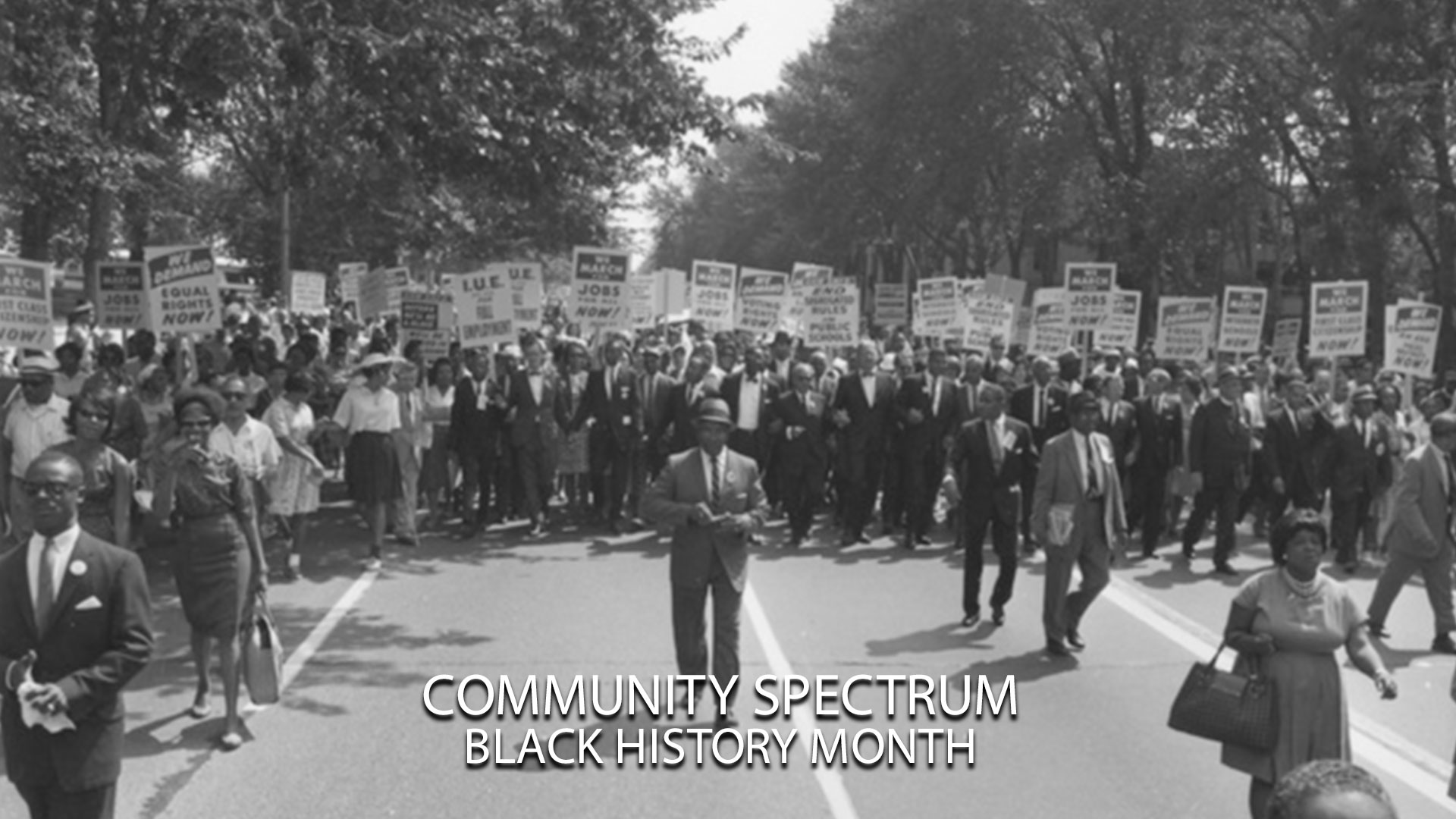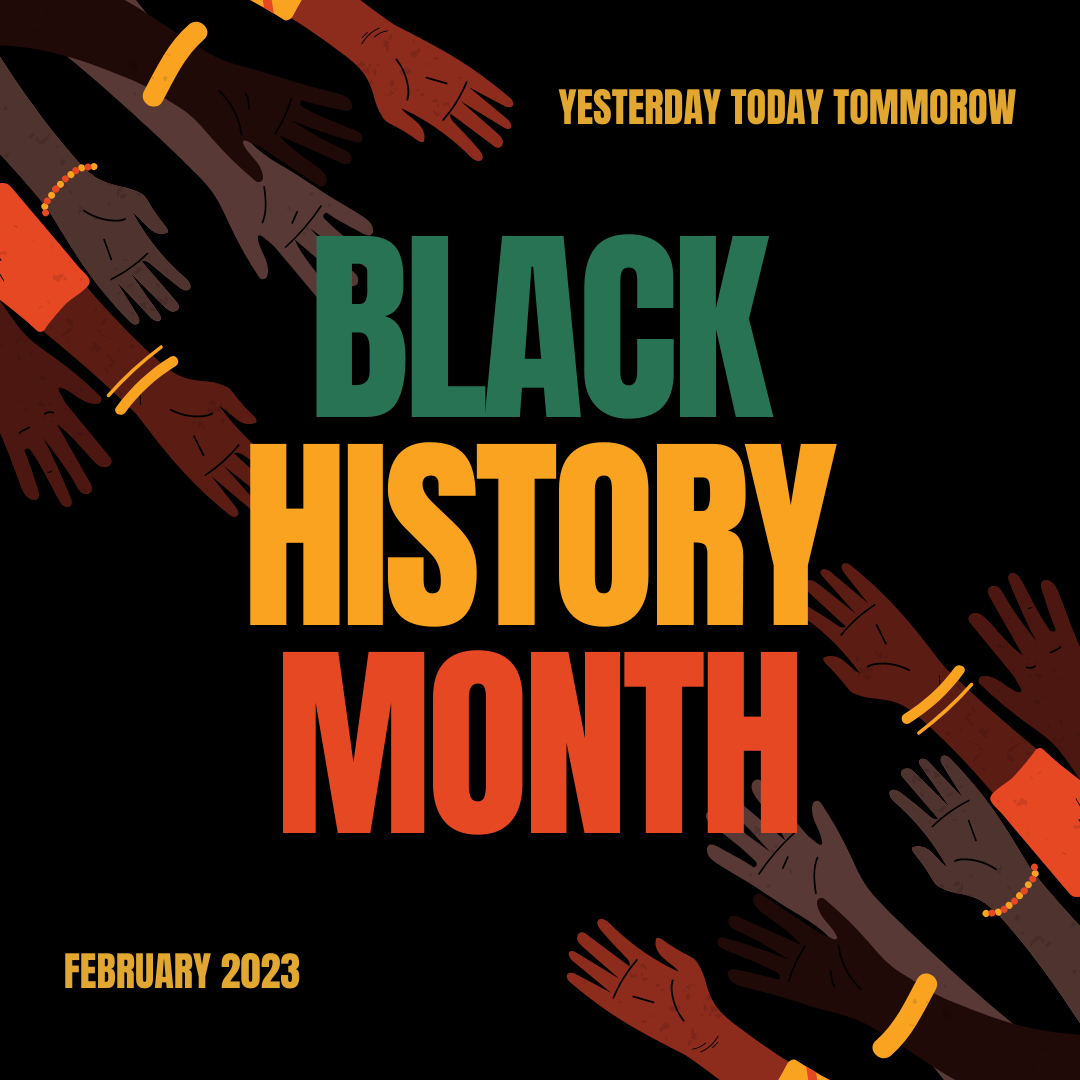February is Black History Month, a time to honor the contributions, struggles, and triumphs of African Americans throughout history. It's not just about remembering the past but celebrating the vibrant culture that has shaped our nation. This month serves as a reminder of the enduring impact African Americans have had on every aspect of life, from art and science to politics and beyond.
So, why does this matter? Well, understanding Black History Month isn't just about acknowledging the past; it's about building a better future. It's about recognizing the contributions of those who have fought for equality and justice, paving the way for generations to come. This isn't just a history lesson; it's a celebration of resilience, innovation, and progress.
Let's dive into what makes Black History Month so important. It's not just about remembering names and dates; it's about understanding the stories behind them. It's about seeing how far we've come and how far we still need to go. So, whether you're here to learn, to celebrate, or to reflect, you're in the right place.
Read also:Ed Call Of Duty Dmz 20 Ndash The Ultimate Guide To Survive And Thrive
What Exactly is Black History Month?
Black History Month is more than just a month-long observance; it's a celebration of African American culture, achievements, and history. Established in 1926 as Negro History Week by historian Carter G. Woodson, it evolved into the month-long celebration we know today in 1976. The month of February was chosen because it coincides with the birthdays of Abraham Lincoln and Frederick Douglass.
This month isn't just about looking back; it's about moving forward. It's a time to reflect on the progress made and the work still needed to achieve true equality. It's about celebrating the contributions of African Americans in every field imaginable, from science and technology to music and literature.
Why February Was Chosen
February wasn't picked at random. It aligns with the birthdays of two pivotal figures in American history: Abraham Lincoln, who issued the Emancipation Proclamation, and Frederick Douglass, a former slave turned abolitionist leader. This timing serves as a powerful reminder of the fight for freedom and equality that continues to this day.
It's also a month filled with celebrations and events across the country. Schools, communities, and organizations host activities to honor the legacy of African Americans. From art exhibits to lectures, there's something for everyone to learn and enjoy.
Key Figures in Black History Month
Let's talk about some of the amazing individuals who have shaped history. From Martin Luther King Jr. to Rosa Parks, these figures have left an indelible mark on our world. But there are so many more stories to discover, from scientists and inventors to artists and activists.
Dr. Martin Luther King Jr.
Martin Luther King Jr. is arguably one of the most iconic figures in the civil rights movement. His famous "I Have a Dream" speech continues to inspire millions around the world. But did you know he was also a gifted writer and orator? His work extended far beyond marches and protests; he was a visionary leader who believed in the power of nonviolence.
Read also:Tyson Rape Lawsuit Dropped The Untold Story Behind The Case
Here are some key facts about Dr. King:
- He was awarded the Nobel Peace Prize in 1964.
- He helped organize the Montgomery Bus Boycott.
- He played a crucial role in the passage of the Civil Rights Act of 1964.
The Importance of Black History Month Today
In today's world, Black History Month remains as relevant as ever. It's a time to confront the challenges of racism and inequality that still exist. It's about creating opportunities for dialogue and understanding. It's about celebrating diversity and promoting inclusivity.
But it's also about action. It's not enough to just acknowledge the past; we need to actively work towards a more equitable future. This means supporting Black-owned businesses, advocating for policy changes, and educating ourselves and others about the ongoing struggle for justice.
How You Can Get Involved
There are countless ways to participate in Black History Month. Here are a few ideas:
- Attend local events and celebrations.
- Read books by Black authors.
- Support Black-owned businesses.
- Engage in conversations about race and equality.
Every little action counts, and together we can make a difference.
Black History Month Around the World
While Black History Month is most commonly celebrated in the United States, its influence extends far beyond. Countries like Canada and the United Kingdom also recognize this important month. Each country has its own unique way of celebrating, reflecting the diverse experiences of African descendants worldwide.
In Canada, for example, the theme for 2023 was "Ours to Tell: Celebrating Black History and Voices." This theme highlighted the importance of storytelling in preserving and sharing Black history. Meanwhile, in the UK, events focus on education and awareness, aiming to promote a more inclusive understanding of history.
Global Impact of Black History
The global impact of Black history is profound. It's about recognizing the contributions of African descendants in every corner of the world. From the arts to politics, Black voices have shaped the course of history in countless ways. Celebrating Black History Month is about acknowledging this shared heritage and working towards a more inclusive future.
Challenges and Triumphs in Black History
Black history is filled with both challenges and triumphs. It's a story of resilience in the face of adversity. From the transatlantic slave trade to the civil rights movement, African Americans have faced countless obstacles. Yet, through it all, they've continued to rise, making significant contributions to society.
Some of the major milestones include:
- The abolition of slavery in 1865.
- The passage of the Civil Rights Act in 1964.
- The election of Barack Obama as the first Black president in 2008.
These achievements didn't happen overnight; they were the result of decades of hard work and sacrifice.
Lessons We Can Learn
There are so many lessons we can take away from Black history. One of the most important is the power of perseverance. Despite facing unimaginable challenges, African Americans have continued to push forward, breaking barriers and achieving greatness.
Another lesson is the importance of unity. Change doesn't happen in isolation; it requires people coming together to fight for justice and equality. Whether it's through protests, petitions, or policy changes, collective action has the power to create lasting change.
The Role of Education in Black History Month
Education plays a crucial role in celebrating Black History Month. It's about teaching the next generation about the past so they can build a better future. Schools across the country incorporate lessons about African American history into their curricula, ensuring that students have a well-rounded understanding of history.
But education isn't just for students. Adults can also benefit from learning more about Black history. Whether it's through reading books, watching documentaries, or attending lectures, there are countless ways to expand your knowledge.
Recommended Reading
Here are a few books that offer valuable insights into Black history:
- "The New Jim Crow" by Michelle Alexander.
- "Stamped from the Beginning" by Ibram X. Kendi.
- "Between the World and Me" by Ta-Nehisi Coates.
These books provide a deeper understanding of the systemic issues facing African Americans and offer strategies for creating change.
Black History Month and the Arts
The arts have long been a powerful tool for expressing the African American experience. From music and dance to visual arts and literature, Black artists have used their talents to tell their stories and bring about change. Black History Month is a time to celebrate these contributions and support emerging artists.
Some of the most influential Black artists include:
- Louis Armstrong, whose music helped break down racial barriers.
- Maya Angelou, whose poetry and prose continue to inspire.
- Jacob Lawrence, whose paintings depict the African American experience.
These artists have left a lasting legacy that continues to inspire and educate.
Supporting Black Artists
One of the best ways to celebrate Black History Month is by supporting Black artists. Attend art shows, buy their music, and read their books. By doing so, you're helping to ensure that their voices are heard and their stories are told.
Looking to the Future
As we look to the future, it's important to remember the lessons of the past. Black History Month serves as a reminder of the progress made and the work still needed. It's about building a world where everyone has an equal opportunity to succeed, regardless of race or background.
But it's not just about hoping for change; it's about making it happen. Whether it's through education, advocacy, or simply being an ally, we all have a role to play in creating a more just and equitable society.
Call to Action
So, what can you do? Start by educating yourself about Black history. Read books, watch documentaries, and attend events. Support Black-owned businesses and artists. Most importantly, have conversations with others about race and equality. The more we talk about these issues, the more we can work towards understanding and change.
Black History Month isn't just a month-long observance; it's a call to action. It's a reminder that the fight for justice and equality is ongoing. By celebrating the past and working towards a better future, we can honor the legacy of those who have come before us and pave the way for generations to come.
Conclusion
Black History Month is more than just a celebration; it's a movement. It's about recognizing the contributions of African Americans and working towards a more inclusive future. From the struggles of the past to the triumphs of the present, there's so much to learn and celebrate.
As we wrap up this article, remember that change starts with you. Whether it's through education, advocacy, or simply being an ally, every action counts. So, let's continue to celebrate, learn, and grow together. Share this article with others, leave a comment, and let's keep the conversation going.


